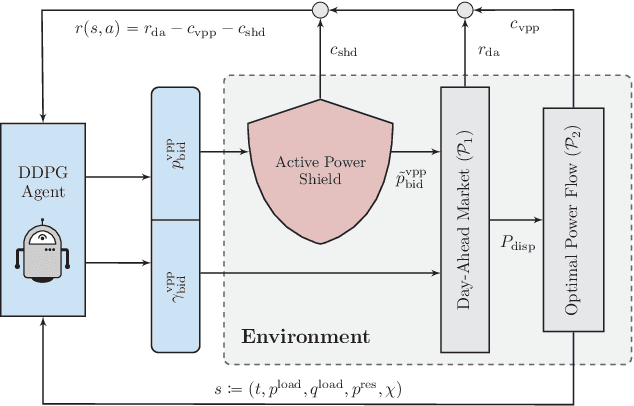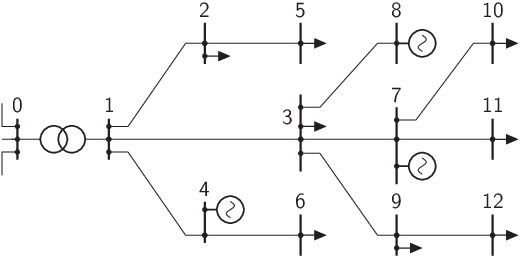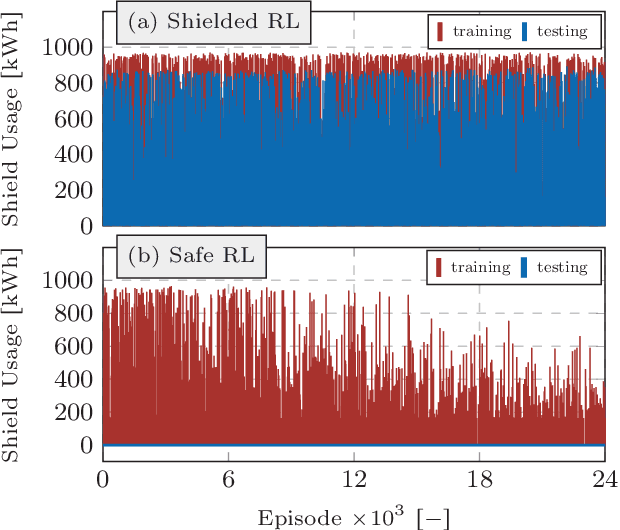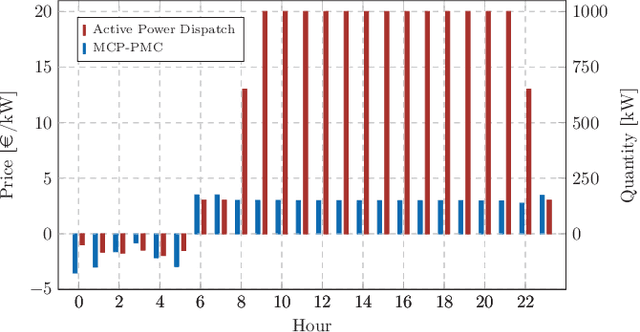Gabriela Hug
Enhancing LLMs for Power System Simulations: A Feedback-driven Multi-agent Framework
Nov 21, 2024Abstract:The integration of experimental technologies with large language models (LLMs) is transforming scientific research, positioning AI as a versatile research assistant rather than a mere problem-solving tool. In the field of power systems, however, managing simulations -- one of the essential experimental technologies -- remains a challenge for LLMs due to their limited domain-specific knowledge, restricted reasoning capabilities, and imprecise handling of simulation parameters. To address these limitations, we propose a feedback-driven, multi-agent framework that incorporates three proposed modules: an enhanced retrieval-augmented generation (RAG) module, an improved reasoning module, and a dynamic environmental acting module with an error-feedback mechanism. Validated on 69 diverse tasks from Daline and MATPOWER, this framework achieves success rates of 93.13% and 96.85%, respectively, significantly outperforming the latest LLMs (ChatGPT 4o and o1-preview), which achieved a 27.77% success rate on standard simulation tasks and 0% on complex tasks. Additionally, our framework also supports rapid, cost-effective task execution, completing each simulation in approximately 30 seconds at an average cost of 0.014 USD for tokens. Overall, this adaptable framework lays a foundation for developing intelligent LLM-based assistants for human researchers, facilitating power system research and beyond.
Enabling Large Language Models to Perform Power System Simulations with Previously Unseen Tools: A Case of Daline
Jun 26, 2024


Abstract:The integration of experiment technologies with large language models (LLMs) is transforming scientific research, offering AI capabilities beyond specialized problem-solving to becoming research assistants for human scientists. In power systems, simulations are essential for research. However, LLMs face significant challenges in power system simulations due to limited pre-existing knowledge and the complexity of power grids. To address this issue, this work proposes a modular framework that integrates expertise from both the power system and LLM domains. This framework enhances LLMs' ability to perform power system simulations on previously unseen tools. Validated using 34 simulation tasks in Daline, a (optimal) power flow simulation and linearization toolbox not yet exposed to LLMs, the proposed framework improved GPT-4o's simulation coding accuracy from 0% to 96.07%, also outperforming the ChatGPT-4o web interface's 33.8% accuracy (with the entire knowledge base uploaded). These results highlight the potential of LLMs as research assistants in power systems.
Safe Reinforcement Learning for Strategic Bidding of Virtual Power Plants in Day-Ahead Markets
Jul 11, 2023



Abstract:This paper presents a novel safe reinforcement learning algorithm for strategic bidding of Virtual Power Plants (VPPs) in day-ahead electricity markets. The proposed algorithm utilizes the Deep Deterministic Policy Gradient (DDPG) method to learn competitive bidding policies without requiring an accurate market model. Furthermore, to account for the complex internal physical constraints of VPPs we introduce two enhancements to the DDPG method. Firstly, a projection-based safety shield that restricts the agent's actions to the feasible space defined by the non-linear power flow equations and operating constraints of distributed energy resources is derived. Secondly, a penalty for the shield activation in the reward function that incentivizes the agent to learn a safer policy is introduced. A case study based on the IEEE 13-bus network demonstrates the effectiveness of the proposed approach in enabling the agent to learn a highly competitive, safe strategic policy.
Unsupervised Disaggregation of Water Heater Load from Smart Meter Data Processing
Apr 07, 2021



Abstract:In the residential sector, electric water heaters are appliances with a relatively high power consumption and a significant thermal inertia, which is particularly suitable for Demand Response schemes. The success of efficient DR schemes via the control of water heaters presupposes an accurate estimate of their power demand at each instant. Although the load of water heaters is rarely directly measured, a large penetration of Smart Meters (SMs) in distribution grids enables to indirectly infer this information on a large scale via load disaggregation. For that purpose, a considerable number of Non-Intrusive Load Monitoring (NILM) approaches are suggested in the literature. However, they require data streams at a time resolution in the range of one second or higher, which is not realistic for standard SMs. Hence, this paper proposes an unsupervised approach to detect and disaggregate the load profile of water heaters from standard SM data with a time resolution in the minute range. Evaluated on multiple real loads with sub-metering, the proposed approach achieves a Normalized Mean Absolute Error (NMAE) lower than 2% and a precision generally higher than 92% with time resolutions between 5 and 15 minutes.
 Add to Chrome
Add to Chrome Add to Firefox
Add to Firefox Add to Edge
Add to Edge